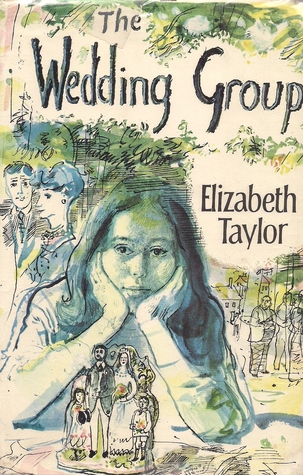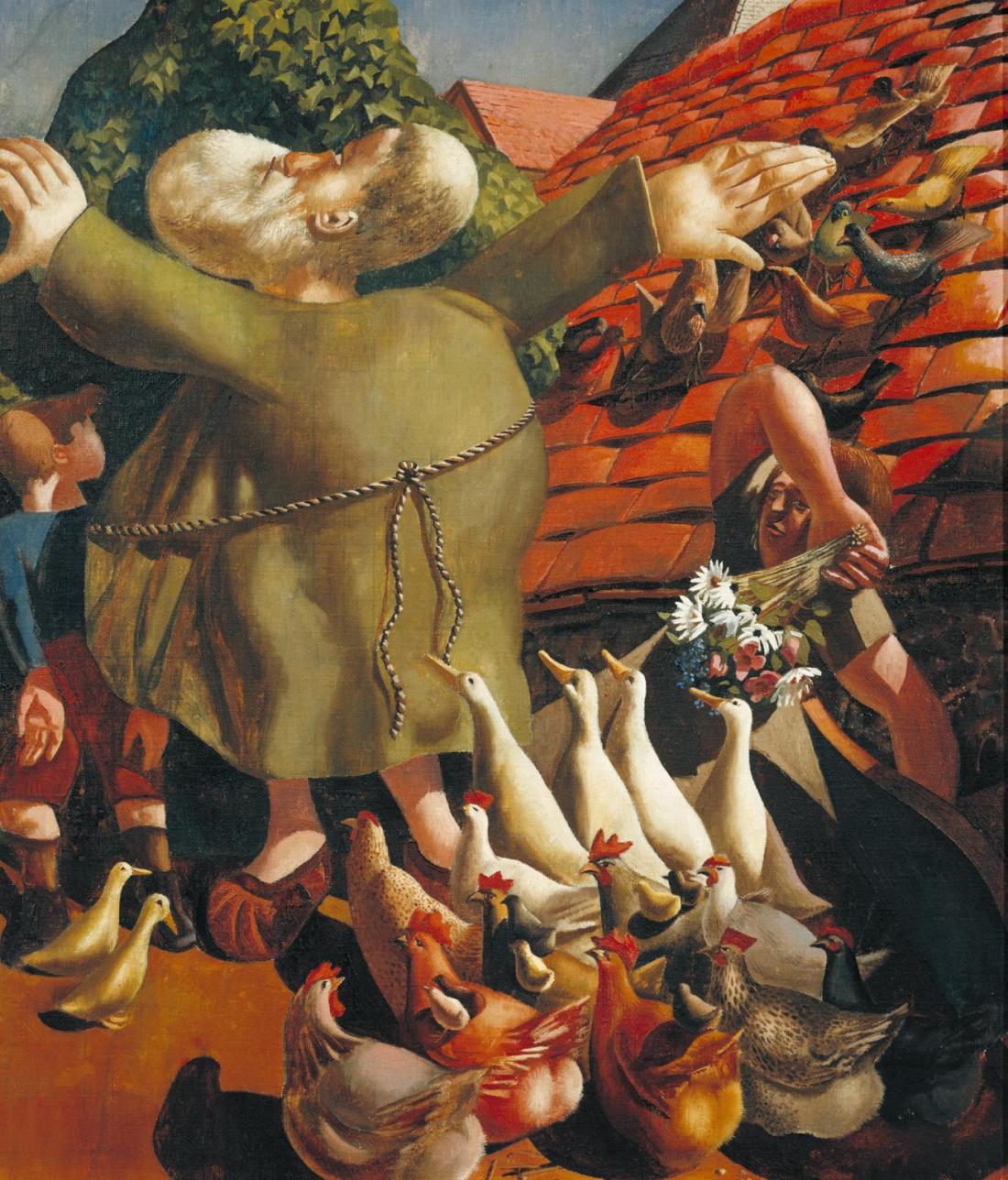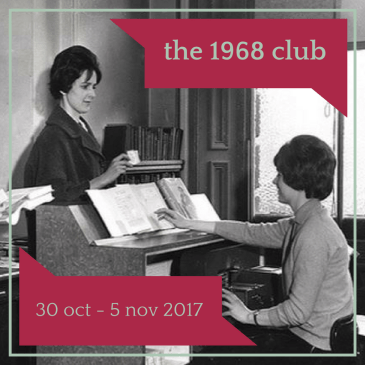
Oops! I had a brainstorm when I mentioned the 1968 Club and forgot to say that I’d also read The Wedding Group, by Elizabeth Taylor, so I’m writing about it now, and will try to squeeze Muriel Spark in before the week ends. Taylor’s writing, like many of her characters, tends to be understated, restrained and gentle. But there’s nothing cosy or comforting about her work; no-one dissects the middle classes quite like her, and she can be every bit as cruel and acerbic as Muriel Spark or Beryl Bainbridge, with a dark edge that is not always apparent at first reading. The Wedding Group isn’t generally regarded as one of her best novels, but I loved it. Like Bainbridge’s Another Part of the Wood, the storyline is slender, and it’s the interplay of emotions between the characters which is important. Again, the characters aren’t necessarily likable, but Taylor writes with a warmth and understanding that Bainbridge lacks.
Quayne is an island of self-sufficiency in a consumer world. It’s a cloistered, quasi-Catholic community created by artist Harry Bretton, commonly known as the Master. He had a period of notoriety when he first produced his paintings of religious scenes peopled by those in his inner circle. Over the years his fame has faded, but he continues to dominate his family, friends and acolytes. He wears a smock, sandals and shepherd’s cloak, talks about humility in art, and humility in life, thinks feminism is an ‘ungainly aberration’, and has opinions on everything. He has established the ‘good life’, with home-grown vegetables, home-baked bread (in vast quantities) and hand-woven clothes. Taylor tells us:
“Here, at Quayne, everything was all of a piece, everyone, everything, fitted into the Master’s scheme; for Harry Bretton had views on every aspect of life, and had, with what seemed to be the greatest of luck, found that all formed part of the whole vision, Here, there was nothing he thought of as spurious, nothing meretricious, nothing counterfeit. All was wholesome, necessary, simple, therefore good and beautiful, too.”

But there is one dissenter among his band of followers: as he himself observes, Cressida, his 18-year-old granddaughter, no longer sings in tune with the family. It’s the swinging sixties, and Cressy doesn’t want to wear home-made sack-like dresses and eat beans (and who can blame her). “She dreamed of Wimpy Bars and a young man with a sports car, of cheap and fashionable clothes that would fall apart before she tired of them,” says Taylor. Cressy leaves home, and gets a job in an antique shop where she lives in a room in the attic.
She drifts into marriage with journalist David (who she first met when he wrote a feature on life at Quayne), they move into a damp, cold dilapidated cottage, and produce a baby son. David is smitten by Cressy’s other-worldly charms, her gallantry in starting a new life, and her joy and enthusiasm embracing her new world – she loves popular culture, television, junk food and trashy, throw-away possessions. However, her isolated upbringing means she is an innocent cast adrift in an environment she doesn’t understand, and married life is not what she expects. She’s no good at cooking or housework, is nervous of the baby (who cries constantly and is sick a lot), and is lonely, for David commutes to London every day and often stays overnight, allegedly with a photographer friend because it’s so late he can’t get home, but in reality visiting Nell, his former girlfriend who is now his mistress. And his mother Midge is a force to be reckoned with, although she masks her true intentions under a guise of helpfulness.
Midge is another lonely woman. She is desperately, desperately lonely since her husband walked out and her elder sons moved away. Now she lives her life for and through David, and has re-invented herself to become the perfect housewife and companion, caring for him so well that, hopefully, he will never leave. She is devastated by his marriage, but lays her plans carefully. On the face of it she is kind and supportive, but there’s a brilliant moment when Taylor describes how Midge stops her car to give Cressy a lift: “Oh, you are the most thoughtful woman I ever knew,” Cressy said, getting in. Indeed, Midge did have a great number of thoughts. Few could have more.”
Midge’s help highlights the difference between her own well-ordered home and the chaos at the cottage, and the more she does the less able Cressy becomes. Her moment of of rebellion is diminished as Midge becomes more powerful, and she loses herself, unable to fight back because she doesn’t even realise that a war of wills is under way. And just as the young couple are thinking of fulfilling their dream and escaping to London there is a mysterious burglary… there are no fingerprints or other evidence… but Midge’s diamond earrings have been stolen… so David and Cressy cannot leave her…
Despite this crisis the novel ends on an upbeat note, and one can only hope that David and Cressy finally find happiness and make a life for themselves, though neither of them is very good at looking after themselves, let alone others.

There’s a host of other characters brought to life with deftness and humour. People speak in clichés which convey new, hidden meanings, and Taylor is a master of elusion, obscuring certain facts, just as people do in real life, but somehow this lack of precision serves to make things clearer. What she doesn’t say is as important was what she does, and she tells us exactly what we need to know, no more, and no less, and in so doing rapidly establishes personality. For example, there’s Mrs Brindle, the gossipy charwoman who works for Quayne and Midge, and can’t help overhearing what she shouldn’t know and having heard can’t forget!
And there’s the beautiful, sophisticated brother and sister who run the antique shop and are strangely close. One wonders what is going on there, nut nothing explicit is ever revealed, and we’re left to draw our own conclusions.
Then there is David’s father, old before his time, with a quaint, old-fashioned turn of phrase. Just like Midge (who he is ‘keeping in gin’) he seems to have created a version of himself that may or may not be real (which of us ever knows who a person truly is).and this may account for the fact that he looks and sounds like an actor playing part – even his bald head looks like a wig. David’s conversations with his father are very funny, but there are some heart-stoppingly sad moments.
And, of course, there is the community at Quayne, which finds itself under threat as new houses invade the surrounding woodland, and Cousin Pet falls prey to an older man and gives birth, much to Harry’s delight since he needs a model for his Madonna and Child! Apart from Harry, who dominates the group, the most memorable character is their tame priest Father Daughtry, who likes ‘fillums’ and alcohol. Mostly the family and their hangers-on are meek, mild, and very quiet – years of living with Harry have ground them into submission, though you can see that Cressy’s father must once have been more lively than he is now. And there’s a poignant moment when she realises that if she had been a better daughter then unemotional Rose might have been a better mother.
The novel is very much about loneliness, and people’s response to it, and the way they cope – they may live together, and there are ties that bind them to others, but somehow they still lead solitary lives and never form trusting, sharing relationships.
PS: You can see what everyone else at the 1968 Club has been reading by clicking here.

Lovely review! This is definitely one of my favourite Taylors – her writing is so good in it!
LikeLiked by 1 person
The writing was wonderful, and I loved her characterisation, and the way it’s so much of its time, yet still has relevance today – I suppose human nature doesn’t really change over the years.
LikeLiked by 1 person
Great review! I’ve just written mine (coming on Fri) and amused that we used the same quotation about Wimpys etc 🙂 I think you liked this one a bit more than I did – but I did think it was very good nonetheless, especially on Midge.
LikeLiked by 1 person
Great minds think alike!
LikeLike